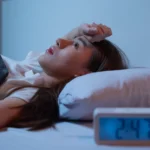Diagnosing ADHD in Women
Diagnosing ADHD in women is challenging due to subtler symptoms compared to men and diagnostic criteria often based on male behavioral patterns. Comprehensive clinical assessment is essential to ensure an accurate diagnosis and to diagnose adhd while addressing all symptoms.
Many women seek diagnosis after realizing they share symptoms with their children ADHD diagnosed with ADHD. Between 2020 and 2022, ADHD diagnoses for adult women aged 30 to 49 nearly doubled, highlighting growing recognition of the condition.
In the following subsections, we will explore gender bias in diagnosis and the impact of hormonal changes on ADHD symptoms for people assigned female.
Gender Bias in Diagnosis
Gender bias in diagnosing ADHD often results from a historical focus on male behavioral patterns and symptoms, leading many women to go undiagnosed adhd or be misdiagnosed with other disorders. Women may also conceal symptoms to conform to societal norms, further contributing to underdiagnosis.
Addressing these biases is crucial for achieving a proper diagnosis and ensuring women receive the support they need to manage their ADHD symptoms effectively.
ADHD and Hormonal Changes
Hormonal fluctuations can cause unpredictable changes in ADHD symptoms throughout a woman’s life. Transitions like puberty, pregnancy, and menopause can trigger emotional symptoms such as irritability, mood swings, and general life dissatisfaction. Managing symptoms during these times requires careful consideration of hormonal changes and life responsibilities.
Understanding the impact of female hormones on ADHD symptoms can help women and their healthcare providers develop more effective management strategies, ensuring better overall health and well-being.
Managing ADHD Symptoms in Women
Managing ADHD symptoms in women involves:
- A combination of medication, therapy, and lifestyle adjustments.
- Taking charge of one’s health and self-advocacy, which are vital.
- Group interventions that can provide cost-effective support, improve stress management, and enhance interpersonal skills.
Standard treatments for ADHD typically involve a combination of medication, educational support, skills training, and counseling. Women with high-functioning ADHD often develop coping strategies to manage their symptoms, such as studying harder or using multiple reminders. Recent ADHD research has also highlighted the importance of tailored approaches for individuals.
The following subsections will provide more detailed strategies, including exercise and mindfulness, organizational strategies, and sleep hygiene.
Exercise and Mindfulness
Regular exercise effectively manages ADHD symptoms by boosting attention and focus, reducing excess energy, and easing stress and anxiety. Engaging in exercise 4 to 5 times a week for about 30 minutes each session is recommended.
Mindfulness meditation also helps manage ADHD symptoms by improving focus, attention, and emotional regulation. Starting with short meditation sessions and gradually increasing the duration makes mindfulness practices more accessible and effective.
Organizational Strategies
Women with ADHD often face challenges in managing daily tasks, leading to feelings of overwhelm and disorganization. Planners and to-do lists can significantly assist in organizing tasks and improving time management skills.
Implementing these organizational tools can reduce stress and create a more structured approach to daily life.
Sleep Hygiene
Practicing good sleep hygiene can improve sleep quality in women with ADHD. This includes creating a restful environment, limiting screen time before bed, and establishing a calming bedtime routine.
Maintaining a consistent sleep schedule is crucial for improving overall sleep quality and daily functioning.
Treatment Options for ADHD in Women
ADHD treatments for women include a combination of medication, counseling, and support groups tailored to individual needs. Medication and therapy can significantly improve ADHD symptoms. Atlantic Behavioral Health offers an intensive outpatient program for adults with adult ADHD, focusing on both therapy and medication management.
A symptom-focused approach to ADHD treatment allows for individualized care, utilizing various therapeutic approaches, including cognitive behavioral therapy, to help adults control symptoms and manage ADHD symptoms effectively and treat ADHD.
ADHD Medications
Stimulant medications, often the first line of treatment for ADHD medication, help increase dopamine and norepinephrine levels in the brain, improving focus and attention. Some women may benefit from non-stimulant options if stimulants cause adverse effects. Non-stimulant medications like atomoxetine and certain antidepressants take longer to show effects but can still significantly reduce ADHD symptoms.
Stimulant medications are not a cure for ADHD, but they can significantly improve daily functioning and quality of life.
Therapy and Counseling
Therapeutic approaches like cognitive-behavioral therapy (CBT) effectively address ADHD-related issues and enhance coping strategies. CBT helps women with ADHD recognize how their thoughts and behaviors are interconnected and develop new ways to manage symptoms, particularly benefiting challenges like self-esteem issues and emotional regulation.
Family therapy improves communication and coping strategies for both ADHD patients and their families. Involving family members fosters a supportive environment that encourages better understanding and management of ADHD symptoms.
Support Groups
Support groups provide emotional support and valuable insights from shared experiences with ADHD. These groups offer women a platform to share challenges and successes, creating a sense of community and connection that can be incredibly empowering. Joining a support group can enhance this experience even further.
Support groups facilitate the exchange of coping strategies and practical advice, helping women manage their symptoms more effectively. Being part of a group that understands the unique challenges of ADHD can significantly enhance emotional well-being and provide a network of support.
Atlantic Behavioral Health Services
Atlantic Behavioral Health offers an intensive outpatient program (IOP) for mental health, providing comprehensive care without requiring hospitalization. This program includes therapy and medication management tailored to each patient’s unique needs. Health insurance coverage depends on the insurer and their policy. To verify coverage quickly, individuals should provide basic details about their insurer to Atlantic Behavioral Health.
The facility offers a wide range of mental health services, including the management of anxiety disorders, depression, and bipolar disorder, as well as support for various mental health conditions and mental health condition. Atlantic Behavioral Health’s approach ensures each patient receives personalized care in a supportive environment, helping them manage their symptoms and improve their overall quality of life.
Recognizing and understanding ADHD in women is crucial for effective management and treatment. Women often face unique challenges due to gender biases in diagnosis and the subtler presentation of symptoms. By highlighting the specific ways ADHD manifests in women, we can better support those affected and help them navigate their daily lives with confidence and resilience.
Whether through a combination of medication, therapy, or support groups, there are numerous strategies available to manage ADHD symptoms. Atlantic Behavioral Health provides comprehensive services tailored to the needs of women with ADHD, ensuring they receive the care and support necessary for their well-being. Embracing these resources can lead to a more fulfilling and balanced life.
Frequently Asked Questions
What are the common symptoms of ADHD in women?
Common symptoms of ADHD in women include inattentiveness, forgetfulness, difficulty focusing, mood swings, and sensitivity to criticism, with hyperactive and impulsive behaviors being less frequent. Understanding these symptoms can aid in recognizing ADHD and seeking appropriate support.
Why is ADHD often undiagnosed in women?
ADHD is often undiagnosed in women because their symptoms tend to be subtler and differ from those seen in men, coupled with societal expectations that encourage them to mask those symptoms. This combination of factors leads to significant underdiagnosis in women.
How do hormonal changes affect ADHD symptoms in women?
Hormonal changes significantly influence ADHD symptoms in women, particularly during puberty, pregnancy, and menopause, often intensifying emotional symptoms like irritability and mood swings. It’s crucial to recognize these fluctuations for better management of ADHD in women.
What are some effective strategies for managing ADHD symptoms in women?
Regular exercise, mindfulness meditation, and the use of organizational tools such as planners and to-do lists are effective strategies for managing ADHD symptoms in women. Additionally, maintaining good sleep hygiene can significantly improve focus and overall well-being.
What services does Atlantic Behavioral Health offer for women with ADHD?
Atlantic Behavioral Health provides an intensive outpatient program for women with ADHD, including therapy and medication management tailored to meet individual needs. Their comprehensive psychiatric and mental health services ensure personalized care and support.







